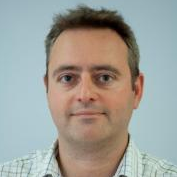 James Georgalakis is the director of communications and impact at the Institute of Development Studies and is director of the ESRC-DFID Impact Initiative for International Development Research.
James Georgalakis is the director of communications and impact at the Institute of Development Studies and is director of the ESRC-DFID Impact Initiative for International Development Research.
Here he asks: are scholars really so out of touch with the real world or do we need to look again at this tired narrative that doesn’t reflect the reality of modern academia?
Explaining my work as a director of communications and impact in an academic institution can sometimes prove challenging.
A case in point was a recent conversation with a new acquaintance about work that went something along the lines of: “So, what is it you do again. Something about research isn’t it?” To which I replied: “Yes, that’s right. I work with academics helping them make sure that their research is put to good use – you know, informing policy, changing attitudes – so it doesn’t just end up in some journal that no one ever reads.”
“Getting them out of their ivory towers, then” came the reply, at which point I nodded vigorously and gave them a knowing smile. Continue reading

